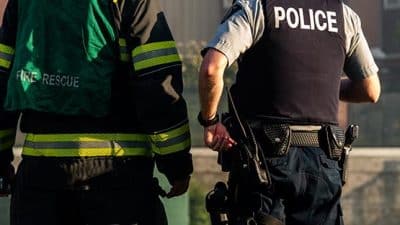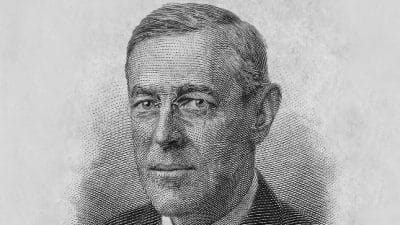
Speaking from his unique perspective as a member of the Senate Foreign Relations and Armed Services Committees, from a state with deep ties to the military, diplomatic and intelligence communities, Kaine laid out the stark choice in this election – between a proven leader with an even temperament and solid judgment or the divisive and dangerous rhetoric of an untested candidate. Trump has shown us, Kaine said, just how reckless and unprepared he is to fill this role. Despite lacking basic knowledge of foreign affairs, Trump believes he knows more than our generals. He has misled the American public about his stance on Iraq and Libya. He trash-talks our military, has a record of stiffing veterans, and failed the test of diplomacy when meeting with President Peña Nieto.
We need a leader equipped to address challenging and nuanced global issues, Kaine said, adding
“I trust Hillary Clinton to make these decisions with full knowledge that the life of my son and his friends may be riding on the outcome. And the prospect of the emotionally volatile, fact-challenged, self-obsessed and inexperienced Donald Trump as
ommander-in-
hief scares me to death.”
“What a treat to be here at the Hannah S. Block Historic USO Building, which is a building that for so many years has provided such great service for our men and women in uniform, especially to their families and friends. I want to thank General Castellaw for his kind introduction but more especially, for his service and for the service of all in this room who are connected with our nation’s military. General Castellaw and I were chatting backstage, and he indicated that in his 36-year military career, he and his wife – his wife and his son – moved 25 times, so forget about just the challenges out there when confronting an enemy, just being in the military and being a military family is about sacrifice and challenge, and I honor that in him.I honor that in Lieutenant Colonel Rhodes, who led us off with the Pledge of Allegiance. We heard from Mayor Pro-tem Haynes, and I had a chance to meet with Mayor Saffo of Wilmington a few minutes ago and visit with him, state representative Susie Hamilton and Dan Blue, candidate for state treasurer, and to all of you for coming. I’m so glad that we could be here today in Wilmington, a city that means a lot to me.I’m here to talk about national security, which is the most serious obligation of any president. This is a topic I have immersed myself in for many, many years. When Hillary Clinton asked if I would serve as her running mate, she told me that, ‘A Clinton-Kaine administration’s achievements would be measured by real differences we make – in somebody’s home, or neighborhood, or school, or workplace.’ She told me that my governing experiences as city council member and mayor, as a lieutenant governor and a governor, and as a senator would help make sure that we measured our progress by tangible differences in people’s lives.
She also told me that my expertise in national security would help her ensure that the Commander-in-Chief of America continues to lead the world in this most challenging century. As a mayor and governor, I was responsible for the safety of our citizens, for respecting our service members and military families, for supporting our Virginia Guard, which was deployed in two wars in my time as governor and for taking care of our troops when they came home.
Virginia is pretty similar to North Carolina. One out of every 10 Virginians is a veteran. Not one out of every 10 Virginian adults; one out of every 10 Virginians from birth to death is a veteran. In the senate, I served on both the Arms Services and Foreign Relations committees. I represent a state that has deep ties to our military, diplomatic, humanitarian, and intelligence sectors. I lived overseas in Honduras at a pivotal in my life, and saw from abroad the role that America leadership can play and our obligation to get it right.
And now my oldest son, a proud Marine, who’s based nearby in Camp Lejeune, his deployed overseas for the second time so when it comes to American national security, I take this personally.
Being president is the hardest job in the world. Every president needs a solid partner because no challenge that makes its way to the Oval Office is easy to solve. Harry Truman, a proud […], said it best: ‘The buck stops here.’ Every day a president deals with late breaking challenges in a world of incomplete data and conflicting advice. We trust the president with the command of our armed forces and even with the codes to our nuclear weapons. The president has to assemble the right team, ask the right questions, process enormous quantities of information and then make quick and resolute decisions. That’s why it takes a very special person to sit behind that desk – somebody with a […], solid judgment, and it helps to have really thick skin.
Let’s be honest, this election has been pretty unusual. We’re used to Republicans and Democrats arguing about policies and priorities – that’s what it ought to be, but within certain boundaries. I did not vote for John McCain, but I admire and still admire his service, his sacrifice, and his example; he’s my committee chair on the Armed Services committee. I didn’t vote for Mitt Romney but I have deep respect for his seriousness, his entrepreneurial energy, and his faith. The choice we face this year, especially on national security, is very different. On the one hand, we have the clear and consistent vision of Hillary Clinton, a proven leader with an even temperament and the qualifications equal to any candidate in our nation’s history who has not only served on the Armed Services committee but has also been the nation’s chief diplomat. Over the course of this campaign, Hillary Clinton has laid out her core belief that the United States is an exemplary nation. She recognizes that we’re not just a superpower because of our economic wealth or our military might; we’re exemplary because of the example we set. For decades, America has championed values like liberty, decency, and compassion. We’re not perfect and we’ll never be perfect, but there’s a reason why people all over the world look to the United States, ask for our help in time of trouble and follow our lead.
On the other hand, we have divisive and dangerous rhetoric of an untested candidate, Donald Trump. Now, I don’t need to twist or spin Donald Trump’s words at all, because once America’s hear his words, just as he said them, just as he said them, they will reach the same conclusion that national security leaders – Democrats, Republicans, and independents – have reached: Donald Trump is unqualified and temperamentally unfit to serve as president of the United States and America’s commander-in-chief.
Donald Trump trash talks our own military and those who sacrifice for it, including John McCain, an American hero and a P.O.W. He picked a fight with a Virginia Gold Star family whose son died saving his fellow soldiers. He has a bizarre fascination with strongmen and authoritarian leaders in countries that are no allies of the United States, and with respect to our allies, he would toss alliances aside, and says he wants to – quote – ‘take everything back from the world that we’ve given to them.’ Trump has offered empty promises and divisive rhetoric. Under his leadership, we would be unrecognizable to the rest of the world. And we would be far less safe.
I want to compare Hillary Clinton’s views to Donald Trump by looking at three areas of the world. Let’s start by looking at the Middle East. Hillary Clinton understands that our security depends on finding ways to address a rising tide of extremism across this wide arc of instability. Working with allies to defeat ISIS, countering Iran’s continued aggression, and defending the State of Israel.
In a region that’s fraught with challenges, there’s no substitute for building strong relationships. That’s why I’ve helped lead Congressional delegations to Turkey, Kuwait, Jordan, Lebanon, Egypt, Iraq, the UAE, Qatar, Saudi Arabia, and Israel. During three trips to Turkey, I’ve met with government officials, U.S. troops, civil society, and religious groups to talk about the threats posed by ISIS. We visited a city not far from the Syrian border – ISIS-controlled territory, and met with Syrian refugees. And over the course of five trips to Israel, I’ve discussed everything from missile defense, to human rights, to economic cooperation.
Now, meetings and experiences like these, on the ground, and in the room, give you essential knowledge about the people and places that impact the safety of America. Hillary has that. She’s been sitting across those tables for years, and Hilary’s on a first-name basis with virtually every head of state in the region. That’s one reason she was able to facilitate a cease-fire in Gaza between Israel and Hamas, and twist enough arms to put sanctions in place on Iran, leading then to a diplomatic breakthrough on Iran’s nuclear program. And it’s how she’s put forward serious plans to defeat ISIS, enforce the Iranian nuclear agreement, and ensure that Israel’s future as a democratic Jewish state is secure.
Trump doesn’t have credible plans for these challenges. Apparently, he doesn’t have a lot of use for real-world experiences – or he says, most of his knowledge comes from reality TV. He says he – quote – gets his insight from – quote – ‘the shows’ on cable news. He may claim to know it all, but on Middle East policy, he’s been all over the map. There’s only one thing that’s consistent: how dangerous his ideas and his rhetoric really are. Let’s look at Iraq. In Trump’s first campaign speech, he claimed that he’d had the foresight to say – quote – ‘Don’t hit Iraq, because you’re going to totally destabilize the Middle East.’ That’s what he said he said back in 2001, 2002. It’s one of the main rationales for his candidacy. And it’s completely made up.
Donald Trump was clearly in favor of the war in Iraq. In 2000, well before the invasion, he said – quote – ‘if we decide a strike against Iraq is necessary, it’s madness not to carry the mission to its conclusion.’ In 2002, Trump told national security expert Howard Stern that he was still in favor of going into Iraq. In 2003, he said the war looked like it had been – quote – ‘a tremendous success,’ and in 2004, given the information that President Bush had, he might have made the same decision to invade.
Now, these days, he rails against the decisions to pull troops out of Iraq – a decision set in motion by the Bush Administration – claiming that that decision led to the creation of ISIS. But folks, here’s the problem: in 2006, Trump said we weren’t pulling our troops out of Iraq fast enough! He said we should – quote – ‘get out of Iraq as quickly as possible.’ There’s no escaping these facts: Donald Trump has misled the American people over and over about his position on Iraq. He was for invading Iraq. And then he decided he wasn’t. He was for leaving Iraq. And then he decided he wasn’t. He says whatever he feels like at any given time, because you can do that when you’re a TV star. But you can’t do that when you’re the President of the United States.
He’s doing the same thing with Libya. Nowadays, Trump says he was never in favor of taking action there. At a GOP debate, he made the incredible claim that he had never even discussed the subject in public. Trump is misleading us here, too. Back in 2011, when the U.S. was weighing whether to intervene in Libya, Trump said that because its leader, Muammar Gaddafi, was killing thousands of his own people, America had to act. He went on NBC and he said that if he were president, he’d create a militarily imposed no-fly zone to protect innocent Libyans.
Now, if that sounds a lot like the policy that President Obama and Hillary Clinton as Secretary of State supported, that’s because it is the policy that President Obama and Hillary Clinton supported. Except instead of playing an armchair general on the Today Show, Hillary was in Paris, engaging in furious, round-the-clock diplomacy with the G8, with the Arab League, and with representatives of the Libyan transitional government to put that no-fly zone in place. Her relentless efforts led to a UN resolution, a coalition air campaign that saw zero loss of American lives, and that ended Gaddafi’s slaughter of innocent people.
It sounds like Trump should have been pretty pleased with that outcome, right? Nope. Donald apparently now thinks – quote – ‘we would be so much better off,’ – close quote – if Gaddafi were still in charge of Libya. And yet, by Trump’s own admission, Gaddafi was a man who – again, quote – ‘knocked a Pan Am airplane out of the sky. This is not a good man. This is not a sane man.’
But Gaddafi was a man who Donald was happy to do business with. Not to put too fine a point on this, but just two years before 2011, when Muammar Gaddafi was set to visit the United Nations and no one would let him stay in New York, Trump allowed Gaddafi to set up an elaborate tent at his Westchester County estate. That’s right. When Gaddafi was looking for a place to stay in America, and because of his human rights track record and the Pan Am bombing, others were turning him away, he found one guy – one guy – who was willing to host him: Donald J. Trump.
You were saying something about judgment, Donald?
Let’s look at Iran. Thanks in part to global sanctions – a global sanctions coalition that Hillary Clinton assembled, President Obama ultimately achieved a historic agreement that put a lid on Iran’s nuclear program without firing a single shot. I worked hard on this in Congress out of a belief that we have to exhaust diplomacy, we have to, before we contemplate other alternatives. I worked across the aisle with the Republican chairman of the Foreign Relations Committee, Republican Senator Bob Corker, to craft a bill that set up a constructive process for congressional review of the Iran deal. That process ultimately improved the deal by strengthening our hand in negotiations, instead of undercutting it through partisan politics.
But we have no idea how Donald Trump would handle Iran – and frankly, neither does he. To try and figure out what his plan would be about Iran, conservative talk show host Hugh Hewitt asked him how he would deal with the Quds Force, which is the aggressive Iranian military units that actively undermine our interests in Iraq and Syria. Trump replied that the Kurds ‘have been horribly mistreated.’ He talked about the Kurds because he had no idea what the Quds Force was, and that the Kurds and the Quds Force could not be more different.
In the same interview, Trump couldn’t tell the difference between Hezbollah and Hamas either. But don’t worry, he said. Eventually, quote, ‘I will know more about it than you do, and believe me, it won’t take long.’ I wonder how much comfort our Israeli ally would find in that promise – or in other ideas he’s had, like Donald’s desire to be a, quote, ‘neutral guy’ when it comes to the peace process, as if you could be neutral about the desire for peace; or to make Israel pay for the defense aid that we provide it.
Israel is our strongest partner in the region, facing a renewed wave of terror attacks, and in an area where both ISIS and Iran pose daily threats. And Trump’s plan was to pat them on the back and tell them, good luck. That’s no way to treat an ally. That’s no way to treat a friend.
When it comes to ISIS, Hillary and I have a smart and credible plan. We’ll intensify our strikes on their strongholds in Iraq and Syria. That is already shrinking the real estate that ISIS controls in the region. And Hillary and I both believe that Congress should finally do its job and take a vote on whether the American military should be using force for now over two years against ISIS. We will keep pursuing diplomacy to end the conflicts that are fueling ISIS’s expansion. We’ll launch an intelligence surge and ensure that we’re coordinating with our allies how to dismantle ISIS’s global networks. And we’ll harden our defenses here at home.
Trump doesn’t think our military is up to the task or America is up to the task of stopping ISIS. He has literally said, ‘We can’t beat them.’ He has more than once called our armed forces ‘a disaster.’ He says that the armed forces of the United States are ‘in shambles,’ that they’re ‘going to hell.’ I don’t know how anybody who’s met with our men and women in uniform could think that, much less say it. As a military father, Donald Trump’s disrespect for our military absolutely infuriates me. And when I – and when I hear him say, I’ll be ‘the best with the vets,’ I have to wonder how a guy who stiffs veterans’ charities and who brags openly about avoiding paying taxes – I have to wonder how that guy will ever be somebody you can count to stand up for vets.
Trump says he knows more ‘than the generals do.’ Knows more than the generals do. Though I bet most of the generals knew that ISIS is led by Abu Bakr al-Baghdadi; in more than one interview, Donald wasn’t up to speed on that important fact. A sad fact is, groups like ISIS are actually kind of rooting for Trump. A recent article in Foreign Affairs actually interviewed a number of jihadists, and many of them are hoping for Trump to succeed in the campaign. They’ve even put out recruitment videos featuring him since Donald Trump’s talk of this un-American banning of all Muslims plays right into their hands for propaganda purposes.
Now, Donald Trump has famously said that his plan to defeat ISIS is secret, but it’s a secret he’s glad to talk about frequently. He has said, for example, ‘It’s simple. Just bomb the oilfields and take the oil. Bomb the oilfields and take the oil.’ Well, let’s play that one out. If we bomb oilfields, it will create massive fires. Okay. So then we would have to do something to put out fires. That would involve sending in an awful lot of contractors and others to put out fires. And since there’s a civil war going on, if we put in contractors and others to put out fires, we’d have to put in a lot of troops to protect them in putting out the fires. And that doesn’t even take into account the pipelines and refineries that we’d have to either build or take over, or the other problems concerning every aspect of his plan after the first day. That just doesn’t interest him.
Now, at other times Trump talks about disengaging and letting Syria become ‘a free zone for ISIS.’ And sometimes he talks about dramatically increasing the use of American ground troops in Syria and Iraq. And sometimes he’s even mused about using nuclear weapons against ISIS, which would cause massive civilian casualties. You know this. The power to authorize the use of nuclear weapons requires a profound understanding of our longstanding posture of deterrence. For decades, the nuclear triad of subs, ICBMs, and strategic bombers has formed a three-part structure of our defense and our readiness. When Trump was asked about the nuclear triad, it was clear he had never heard of it. But he made sure to say that he loves nuclear weapons because, quote, ‘The power, the devastation is very important to me.’ And for some reason, he thinks we should let more countries obtain nuclear weapons.
When Trump was asked about his loose talk about using nuclear weapons he asked, quote, ‘Then why are we making them?’ If this were the only blunder he’d made in his campaign, it would be disqualifying on its own. Hillary Clinton doesn’t need a crash course in Nukes 101. She not only understands nuclear weapons, she helped cement an agreement with Russia that made the world safer from them. And as president, she has a plan to protect us from nuclear terrorism to further reduce the chance these weapons fall into the wrong hands.
Second part of the world. Let’s talk about Russia and Europe. Hillary oversaw hard-nosed negotiations with the Russians for a New START Treaty to greatly reduce our countries’ nuclear stockpiles. This treaty proved that it was still possible for our nations to find common ground on some important points. And there have been others – the destruction of the Syrian chemical weapons stockpile, for example. But that can blind us to the fact that in so many areas, Russia continues to be a very challenging adversary.
Hillary has also gone toe-to-toe with Putin. As Secretary of State, she worked to strengthen our military cooperation with NATO in Eastern Europe. Putin even accused Hillary Clinton of helping democratic opposition movements within Russia. And now Hillary has a plan to support our allies to weaken the Kremlin’s hand and to advance America’s longstanding commitment to a Europe that’s free, whole, and at peace, because a strong European partner is always in American interest. We have hundreds of thousands of Americans who live in Europe, hundreds of thousands or millions who visit Europe, and tens of thousands of American troops are deployed to Europe. A strong Europe is in America’s interest.
That’s not what Donald Trump wants. So maybe it’s no surprise why Russia seems to be backing Trump in this election. But the better question is why Trump seems to support Russian interests at the expense of American ones. Here’s what we know, just the evidence. One of Donald Trump’s sons said, ‘Russians make up a pretty disproportionate’ part of the Trump organization’s assets and, ‘We see a lot of money pouring in from Russia.’ Recent investigations revealed that Trump’s been pursuing deals with Russian officials, oligarchs, and developers with deep ties to Russia since the late 1980s. A Putin associate paid him millions to bring his Miss Universe pageant to Moscow.
As long as Donald Trump keeps hiding his tax returns, we have no idea how he might stand to profit from these deals with Russian interests or what they might be holding over him. But something strange is going on. Trump’s long-time advisor and campaign chairman, Paul Manafort, resigned recently after allegations of corruption, illegal payments and financial ties to Kremlin-supported officials and organizations in both Russia and the Ukraine. His long-time advisor and campaign chairperson. His go-to defense advisor, General Michael Flynn, appears regularly on Russia’s government-funded propaganda channel. Donald Trump has publicly encouraged Russia to hack America and give him information that will help him win the election. No wonder the former Acting CIA Director, Michael Morell, says he believes that Trump is a ‘unwitting agent’ of the Russian Federation.
Now, this isn’t a partisan issue. There’s widespread alarm on both sides of the aisle. Foreign policy experts, including many Republicans, wrote an open letter denouncing Trump’s views on Russia and NATO. And it’s why more than 50 prominent Republican foreign policy experts have said they cannot vote for Donald Trump under any circumstances. These experts know that Vladimir Putin’s longstanding goal is to break the post-war international order that has kept the peace in Europe – that has kept peace in Europe – for decades.
So they don’t understand why Trump is calling NATO ‘obsolete,’ and talking about abandoning our allies. Or why his campaign weakened the Republican party platform’s commitment to defending Ukraine. Or why he claimed Russia would never go into Ukraine, two years after Putin had already invaded the country and annexed the Crimean Peninsula. Or why he’s openly celebrating the United Kingdom’s vote to leave the EU, even though it emboldens Russia and could lead to a more fractured Europe. Or why he’s openly encouraged Russia to hack his political opponents and commit espionage against his own country. Each one of these positions stands in stark opposition to decades of American national security goals. But they match up perfectly with Vladimir Putin’s wish list. It makes you wonder.
Hillary Clinton has proven she can work with Putin if it’s in our interest, but that she’s ready stand up to him, too, when he is taking steps that are against our interests. And she’ll make sure our allies across Europe and around the world never have to wonder about whether America will honor our longstanding commitments. When she’s president, we’ll have their backs because we need them to have ours.
In the NATO treaty there’s an obligation to do collective self-defense. If one NATO ally is attacked, others come to the defense. And Donald says that may be archaic and he wants to dispose of it. The only time that collective self-defense obligation has been triggered was after the United States was attacked on 9/11 and our European NATO allies came to our aid. So what does it say to NATO allies that a presidential candidate is saying, well, now it may be time for us to tear up that defense obligation?
Compare that to Trump’s embarrassing stunt last week. The centerpiece of Trump’s campaign is building a wall and making Mexico pay for it. That’s the centerpiece of the campaign. It’s even a chant at his rallies. Yet when Trump decided to do his first visit with a foreign leader and he finally had the chance to look President Peña Nieto in the eye, he said the subject never came up. In other words, on the central issues of his campaign, when he had the chance to bring it up, he choked. Turns out Donald isn’t such a great negotiator after all. And he was too embarrassed to admit it. After the meeting, Trump said they didn’t discuss payment for the wall.
But President Peña Nieto tweeted that, wait, the first thing I told Trump was that Mexico is not paying for any wall. So just hours after his first international foray into foreign relations, Trump was in an online feud with one of our neighboring heads of state, our second-largest trading partner. Man, if you’re going to get into a feud with an ally, how about dealing with an adversary? I guess we should be glad it’s only a Twitter war because in a few months, Donald Trump could have control of the armed forces. Hillary has described Donald as someone you can bait with a tweet. Well, guess what? It was reported that Trump saw what President Peña Nieto said and that Trump then said quote, ‘I can’t let that tweet go unanswered.’ And he rewrote his immigration speech that he was giving later that night in Phoenix to be even harsher. Baited with a tweet.
And that same evening Donald Trump detailed his plans to deport 16 million people, 11 million who are here without documents and 5 million people who are American citizens who he says he wants to strip their birthright citizenship because they were born to parents without documents. Every single one of them would be subject to deportation. In the opening paragraph of his speech: ‘They’ll all be gone.’ They’ll all be gone. And he repeated the same litany of offensive stereotypes about immigrants, stereotypes that were perpetrated about Irish immigrants, Italian immigrants, Jewish immigrants from Central and Eastern Europe – you could have taken that speech and plugged in different nationalities and run it at pretty much any time in our history, and it would have been sadly familiar – immigrants whom he treats as a convenient scapegoat for problems he’ll never be able to solve.
Well, Hillary and I have a real plan for comprehensive immigration reform, a reform that respects our status as a nation of immigrants and also respects our status as a nation of law. It would include a challenging path to citizenship, helping employers figure out the bona fides of their employees, border security, protection for DREAMers, a comprehensive immigration reform proposal that is supported by the American public and that has also already drawn bipartisan support for its major pillars in the Senate. In our first 100 days in office, we’re not going to be about becoming a Deportation Nation. We’re going to be sending a proposal to Congress that will keep families together, and that will let America be what it’s always been, a place where people from all over the world can bring their talents, ideas, and skills and energy, start new businesses, pursue their dreams, and make our country stronger.
So these are just a few of the differences in three important parts of the world, the Middle East, Russia and Europe, Latin America, differences between Donald Trump and Hillary Clinton. But we know that issues can arise anywhere, and that some of the issues we’re talking about today may turn out not to be the ones that we’ll be talking about a year from now. And so maybe the most important thing to know, the most important thing to understand about Hillary Clinton and Donald Trump, is how they make decisions.
Hillary is a strategic thinker who pulls together a top-notch team, challenges them with tough questions and then makes a firm decision. I know this because I’ve seen her do it. My colleagues on the Senate Armed Services Committee, even Republicans, talk about what a great teammate Hillary was as a committee member, what a great colleague, doing the homework, mastering the details, getting into the weeds to get it right, working hard for military families to increase survivor benefits, to make sure that TRICARE was available. That’s Hillary Clinton. And I think we can agree that on the toughest issues, the quality of the team you put together is one of the most important guarantors of the decisions that you make.
Donald Trump is different. He doesn’t just think he knows more than our generals. He thinks he knows more than everyone. He’s told the American public, ‘I alone can fix it.’ He’s even had the hubris to say that his principal advisor is himself.
So here’s my conclusion. Like every one of the families of the 2 million men and women who serve in our military, whether active duty, guard or reserve, I want a president and commander-in-chief who knows the world, knows its leaders, knows the strength of our military, knows how to conduct diplomacy, and knows how to make a decision to keep America safe. I trust Hillary Clinton to make these decisions with full knowledge that the life of my son and his friends may be riding on the outcome. And the prospect of the emotionally volatile, fact-challenged, self-obsessed and inexperienced Donald Trump as commander-in-chief scares me to death.
If you want to read more about our plans in this area, the important role of national security, there’s a new book that’s out today. It’s called ‘Stronger Together,’ which lays out the Clinton-Kaine vision for American foreign policy in significant detail. We are stronger together. We are stronger together. You know this in Wilmington. The military knows it better than anybody. I’ve often said about my son that if you had told me he was going to change as a result of his military service and asked me to predict what the change would be, I would have gotten it wrong. I would have gotten it wrong. I don’t know exactly what I would have said, but it turns out that the change has been going from free agent to team player. That’s what the military, that’s what the Marines has taught us – has taught him – and it’s proof of that proposition: We’re stronger together.
Donald Trump doesn’t understand that, and at this point in his life, we’d be unrealistic to think that he will. And that’s why I’m so proud to be on this ticket with Hillary Clinton. She’ll be a commander-in-chief with a cool head, a steady hand, an open mind. I trust Hillary to put together an A+ team, to ask tough questions and make the right decisions under pressure. I trust Hillary to lead with the consistent principles that have always been our nation’s trademark. I trust Hillary with the lives of our men and women in uniform.
And with Hillary Clinton in the White House, the rest of the world will never forget why they have always looked up to the United States of America.
Thank you so much for coming today, and thank you so much for all you do for North Carolina and for this nation. Appreciate it.”










